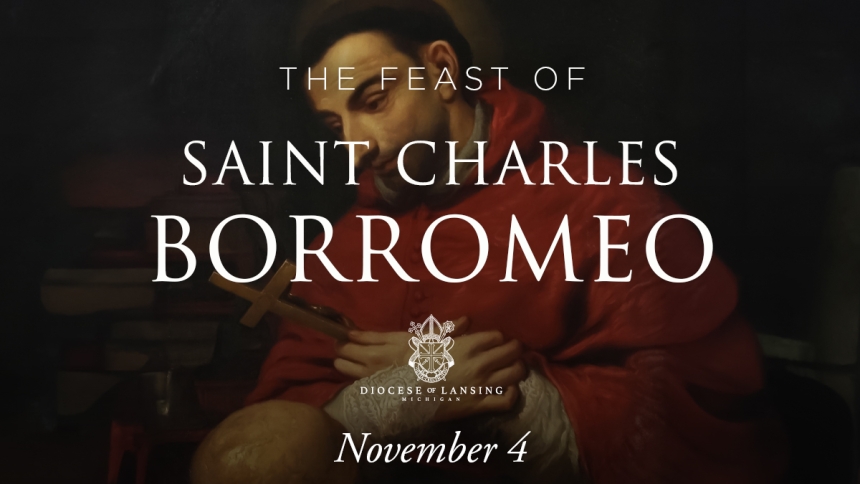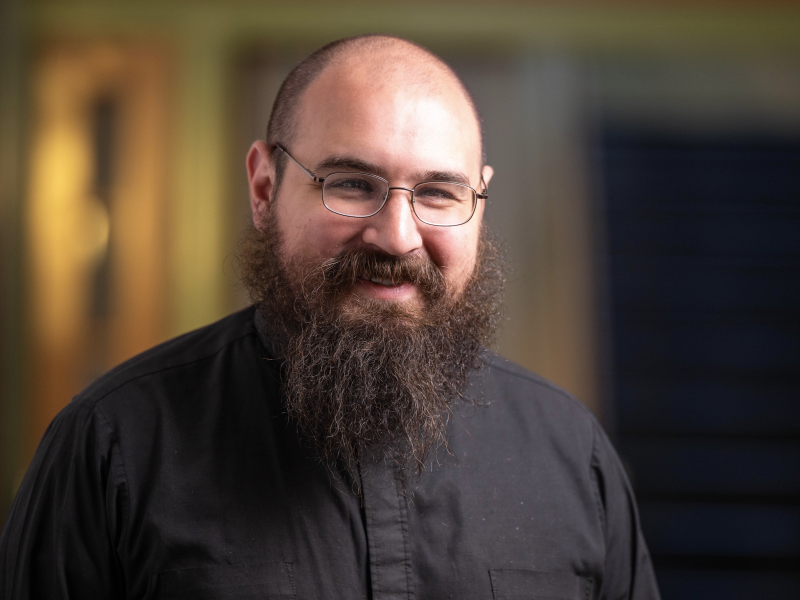
Knowing the beginning of his story, we could easily imagine a different end, writes Father Michael Cassar, pictured below, Director of Vocations for the Diocese of Lansing, November 4, Feast of Saint Charles Borromeo, patron of seminarians.
Saint Charles Borromeo was born October 2, 1538 to a prominent noble family in the Castle of Arona near Milan. He attended the University of Pavia where he studied law, eventually earning a doctorate in canon and civil law.
When his uncle was elected Pope Pius IV (his mother was a Medici), Charles was made a cardinal and given a number of titles and responsibilities. As we are told, Charles at this point of his life was pulled in two directions. On the one hand, he looked out at world in which, at just 22 years old, he had a name, reputation, title, education, wealth, and influence. On the other, he was genuinely faithful and devout.
This tension came to a head when his older brother passed away. Despite being a cardinal, Charles was not an ordained priest. His family encouraged him to enter into lay-life, start a family, and assume the responsibility of the family’s head. Instead, Charles committed himself to a spiritual life by seeking out, and being ordained, a priest September 4, 1563.
This commitment springboarded his path to sainthood. Charles not only became a priest (and shortly thereafter, bishop), he did so fully. He is rightly known for many things: his personal commitment to prayer, penance, and personal sanctity; his contribution to the Tridentine Catechism; his defense of the Church against civil authorities; his concern for the poor; and his heroic leadership as Archbishop of Milan during an outbreak of plague and famine. Above all, Saint Charles Borromeo is known for being a great reformer who was determined to see the Council of Trent put into practice. We pray at mass on his memorial the following collect:
Preserve in the midst of your people, we ask, O Lord, the spirit with which you filled the Bishop Saint Charles Borromeo, that your Church may be constantly renewed and, by conforming herself to the likeness of Christ, may show his face to the world. Who lives and reigns with you in the unity of the Holy Spirit, God, for ever and ever.
The prayer captures the essence of Saint Charles’ reforms. He was not a reformer in the euphemistic sense of one who introduces novelty, but in the literal sense of one who forms again. One who renews. And, in the case of the Church, one who restores the image of Christ in areas where that image has been obscured. From the Cathedral Chapter to the clergy to the religious orders to the lay faithful, Saint Charles dedicated his life to the transformation of his diocese into one marked by holiness.
He spared no detail in the process. For instance, he sealed off doors in the Cathedral to discourage people from taking the Church as a shortcut and so help preserve the sacredness of the space. Perhaps more significantly, he founded a seminary in Milan and is often credited with helping establish the seminary system as we know it thus ensuring a better prepared clergy.
All of this he did at great personal cost. He spent his own money caring for his famine afflicted people, skipped meals, worked tirelessly -- regularly sleeping about 3 hours a night, and even survived an assassination attempt. All of this caught up to him. At the age of just 46, Saint Charles died. In 1610, less than 30 years later, he was canonized.

